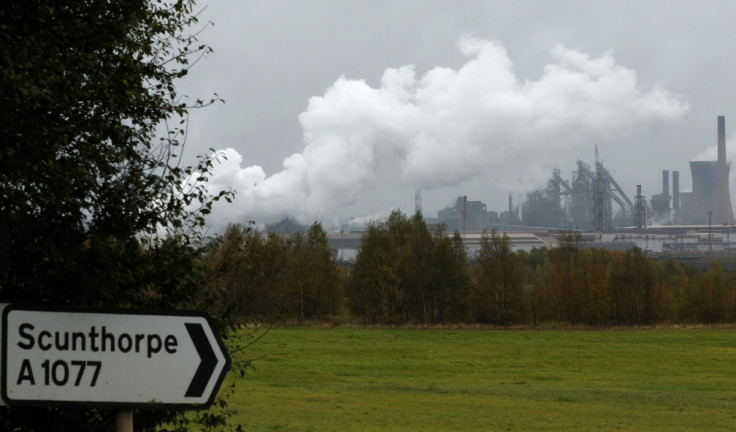Scunthorpe steel plant owned by Tata Steel could see up to 1,000 job cuts

Tata Steel could cut up to 1,000 jobs at its Scunthorpe steel plant as part of its restructuring plan. The announcement could be made as soon as next week.
The company is analysing ways such as restructuring, attracting new investors or even getting a buyer, to allow the plant to survive. It was earlier reported that Anglo-American industrialist Gary Klesch had abandoned plans to buy the Scunthorpe plant, saying that rising energy costs and Chinese imports were ruining the UK steel industry.
The plant, which is one of Britain's biggest remaining steel plants that currently employs a total of 3,000 people, is seen as vital to British industry as it holds important contracts such as producing the steel used to make Britain's railways.
"The workforce at Scunthorpe has done everything Tata has asked and produces some of the best steel in the world but the global steel industry is facing a perfect storm. It's the job of the Government to step in in times of crisis. Scunthorpe has a positive past and will be positive again when the global economy picks up," MP Nic Dakin, whose constituency covers this plant, said.
This job cut comes in the wake of a high-powered summit including ministers and business chiefs that is being planned to discuss UK's crisis-driven steel industry. In early October, SSI UK, a unit of Thailand's largest steelmaker Sahaviriya Steel Industries went into liquidation days after it announced it was closing one of Britain's biggest steelmakers in Redcar, resulting in 1,700 job losses.
Tata, citing "cripplingly high" cost of energy, has cut many jobs across its steel plants in UK this year including 720 jobs at its specialty steel plant in Stocksbridge, South Yorkshire, and a further 250 agency staff as it stopped the working of another steel mill in Llanwern, Wales.
Gareth Stace, director of industry association Steel UK, said: "I hope the summit delivers just more than just talk. If we do not get firm action from the Government I am fearful there will be further casualties in the industry. The fact that ministers have taken the unusual step of calling for this summit is a sign of the seriousness of the situation faced by steel-makers in Britain. We need action."
In 2014, the British steel industry, employing a total of 30,000 people, contributed £9.5bn (€12.9bn, $14.7bn) to the country's economy with exports of £4.9bn. However, various factors have contributed to this industry coming under pressure, such as cheap Chinese imports, higher energy costs compounded by environmental levies, the sterling's strength, apart from business rates that are more inconvenient than those in competing nations.
© Copyright IBTimes 2025. All rights reserved.





















